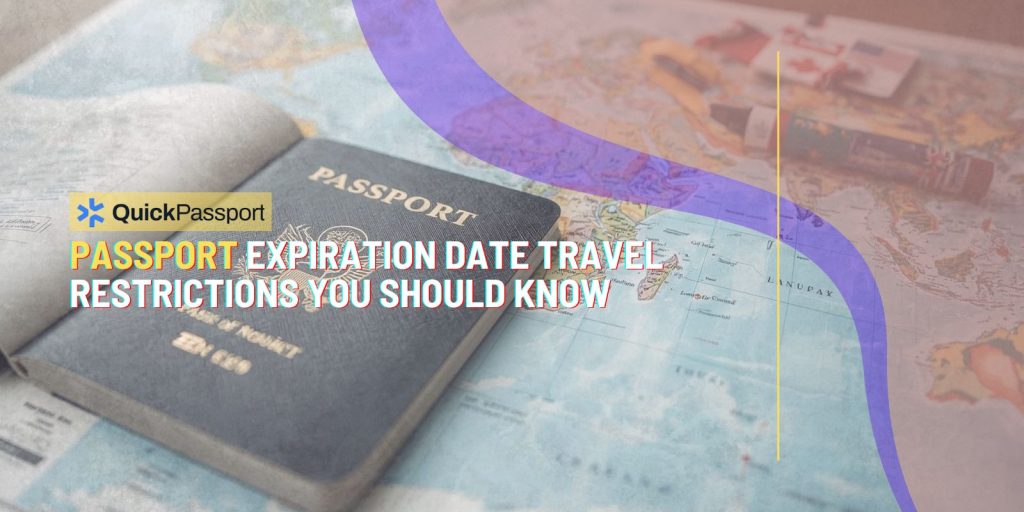Planning international travel requires careful attention to numerous details, but one of the most critical yet often overlooked aspects is understanding passport expiration date travel restrictions. Many travelers assume that as long as their passport hasn’t expired, they’re free to travel anywhere in the world. However, this assumption can lead to devastating consequences, including denied boarding, refused entry at international borders, and ruined vacation plans.
The reality is that passport expiration travel rules vary significantly from country to country, and many destinations require your passport to be valid for months beyond your planned departure date. These requirements, known as passport validity rules, can range from three months to a full year of remaining validity, depending on your destination and nationality. What makes this even more complex is that these rules can change without much notice, and they often differ based on bilateral agreements between countries.
Understanding these restrictions is not just about avoiding travel disruptions; it’s about protecting your investment in travel plans, preventing costly last-minute passport renewals, and ensuring you can handle unexpected travel extensions or emergencies while abroad. The consequences of ignoring these rules can be severe, ranging from being turned away at the airport to facing significant financial losses from non-refundable bookings.
Airlines are particularly strict about enforcing these requirements because they face substantial fines if they transport passengers who don’t meet destination country requirements. This means that even if you’re willing to take the risk, the airline likely won’t allow you to board. Immigration officers at your destination have the final say, and they’re trained to strictly enforce their country’s entry requirements, regardless of your travel plans or circumstances.
The good news is that with proper planning and understanding of these requirements, you can avoid these pitfalls entirely. By familiarizing yourself with the specific rules for your intended destinations and maintaining adequate passport validity, you can travel with confidence and peace of mind.
Key Takeaways
- Six-Month Rule Dominance: Most countries require at least six months of passport validity remaining from your entry date, not your departure date. This is the most common requirement worldwide and applies to popular destinations across Asia, Africa, and South America.
- Three-Month Minimum: European Union countries and many others require at least three months of validity beyond your planned departure date. This rule is particularly important for short-term tourist visits and business trips.
- Airline Enforcement: Airlines will deny boarding if your passport doesn’t meet destination requirements, regardless of your willingness to take risks. They face hefty fines for transporting non-compliant passengers.
- No Universal Standard: Passport validity requirements vary dramatically between countries and can change based on diplomatic relationships, security concerns, and bilateral agreements.
- Emergency Situations: Having extra validity is crucial for handling unexpected travel extensions, medical emergencies, or natural disasters that might delay your return.
- Visa Complications: Many countries won’t issue visas if your passport doesn’t meet their validity requirements, which can be different from their entry requirements.
- Transit Requirements: Even if you’re just transiting through a country, you may need to meet their passport validity requirements, especially if you need to clear immigration.
- Renewal Timeline: Standard passport processing can take 6-8 weeks, while expedited services may reduce this to 2-3 weeks, but emergency situations may require specialized services.
Understanding Global Passport Validity Requirements
Passport expiration date travel restrictions exist as a protective measure for both travelers and destination countries. These requirements ensure that visitors have adequate documentation to remain in the country for their intended stay and can depart without complications. The reasoning behind these rules is multifaceted, involving security concerns, administrative efficiency, and diplomatic considerations.

The most common requirement worldwide is the six-month rule, which mandates that your passport must be valid for at least six months beyond your entry date into the destination country. This requirement is particularly prevalent in Asia, with countries like Thailand, Malaysia, Indonesia, and the Philippines strictly enforcing this rule. The logic behind the six-month requirement is that it provides a substantial buffer for unexpected delays, emergencies, or changes in travel plans.
European destinations typically follow a three-month rule, requiring passport validity for three months beyond your planned departure date. This applies to most European Union countries, as well as popular destinations like Turkey and Russia. The three-month rule is generally more lenient but still requires careful planning, especially for travelers with passports nearing expiration.
Some countries have unique requirements that don’t fit into these standard categories. For example, certain Middle Eastern countries may require six months validity specifically for visa issuance, while others may have different requirements for entry versus visa applications. Understanding these nuances is crucial for successful international travel planning.
Regional Breakdown of Passport Expiration Travel Rules
Asia represents one of the most stringent regions regarding passport validity requirements, with the majority of countries enforcing the six-month rule. Countries like China, India, Japan, South Korea, Thailand, Vietnam, and Indonesia all require six months of remaining validity. This consistency across the region makes it easier for travelers to remember, but it also means that any passport with less than six months validity will severely limit your Asian travel options.
The European Union operates under a more complex system where most member countries require three months of validity beyond your departure date, but there are important exceptions and additional requirements. For instance, while countries like France, Germany, and Italy follow the three-month rule, some may have different requirements for long-term stays or specific visa categories. The UK, post-Brexit, has implemented its own set of rules that travelers need to understand separately.
North and South America present a mixed landscape of requirements. While travel between the United States, Canada, and Mexico generally follows more lenient rules due to regional agreements, South American countries often enforce the six-month rule. Countries like Brazil, Argentina, and Peru typically require six months of validity, while some Caribbean nations may have more flexible requirements for short-term tourist visits.
Africa and the Middle East generally follow the six-month rule, with countries like Egypt, Morocco, South Africa, and the UAE requiring substantial remaining validity. However, some countries in these regions may have additional requirements, such as blank pages for entry stamps or specific visa documentation that must be obtained in advance.
Australia and New Zealand have their own specific requirements that travelers need to understand, particularly regarding electronic travel authorizations and the relationship between passport validity and visa approval. These countries often require that your passport be valid for the entire duration of your intended stay, with additional buffer time recommended.
Common Mistakes and How to Avoid Them
One of the most frequent mistakes travelers make is confusing entry date requirements with departure date requirements. Many countries calculate the required validity period from your entry date, not your departure date. This distinction can mean the difference between a successful trip and a denied boarding situation. For example, if you’re traveling to Thailand for a two-week vacation and the country requires six months validity from entry, your passport must be valid for six months from the day you arrive, not the day you leave.
Another common error is assuming that visa approval guarantees entry compliance. While obtaining a visa is certainly a positive sign, visa requirements and entry requirements can be different. Some countries may issue visas with longer validity periods but still require specific passport validity for actual entry. This discrepancy can create confusion and lead to last-minute complications at the airport or border.
Travelers often underestimate the time required for passport renewal, especially during peak travel seasons. Standard processing times can extend significantly during busy periods, and expedited services may not always be available or sufficient for urgent travel needs. Planning passport renewals well in advance, ideally when your passport has 12-18 months of validity remaining, can prevent these timing issues.
Transit requirements represent another area where travelers frequently make mistakes. Many assume that if they’re not leaving the airport during a layover, passport validity requirements don’t apply. However, some countries require you to clear immigration even for short transits, and their passport validity rules will apply. This is particularly important for complex itineraries with multiple stops or when flying with certain airlines that require immigration clearance.
Family travel presents unique challenges, especially when family members have passports with different expiration dates. Parents often focus on their own passport validity while overlooking their children’s documents. Since passport validity requirements apply to all travelers regardless of age, ensuring that every family member meets the requirements is essential for successful group travel.
Expedited Passport Services and Emergency Solutions
When travelers discover their passport doesn’t meet destination requirements, understanding expedited services becomes crucial. The U.S. Department of State offers several expedited options, including routine service (6-8 weeks), expedited service (2-3 weeks), and emergency services for life-or-death situations. However, these timeframes can vary significantly based on seasonal demand, staffing levels, and current processing volumes.

Regional passport agencies provide same-day or next-day services for travelers who can demonstrate urgent travel needs, typically requiring proof of international travel within 14 days. These agencies are located in major cities and require appointments, which can be difficult to secure during peak travel seasons. Understanding the documentation requirements and appointment booking process can save valuable time in emergency situations.
Private passport expediting services, like QuickPassport – Phoenix, offer specialized assistance for travelers facing time constraints. These services can navigate the complex requirements, handle paperwork preparation, and often provide faster processing times than standard government services. They’re particularly valuable for travelers who discover passport issues close to their departure dates or those dealing with complex situations involving lost passports or urgent travel needs.
For travelers already abroad with passport validity issues, U.S. embassies and consulates can provide emergency passport services. However, these services are typically reserved for genuine emergencies and may result in temporary documents that require additional processing upon return to the United States. Understanding the limitations and requirements of overseas passport services can help travelers make informed decisions about their options.
Prevention remains the best strategy, and travelers should consider renewing passports when they have 12-18 months of validity remaining. This approach provides flexibility for spontaneous travel opportunities and ensures compliance with most international requirements. Additionally, maintaining awareness of family members’ passport expiration dates and planning renewals accordingly can prevent last-minute complications for group travel.
Special Considerations for Different Types of Travel
Business travelers face unique challenges regarding passport validity requirements, particularly when dealing with multiple destinations or frequent international travel. Many countries have specific requirements for business visas that may differ from tourist entry requirements. For instance, some nations require longer passport validity periods for business visas or may have different renewal requirements for multiple-entry business visas.
Cruise passengers often encounter complex passport requirements because their itineraries may include multiple countries with different validity requirements. While some closed-loop cruises departing and returning to U.S. ports may accept alternative documentation, international cruises typically require full passport compliance with the most restrictive destination on the itinerary. Understanding these requirements before booking can prevent significant complications and potential missed departures.
Study abroad programs and long-term travel present additional considerations, as participants need passports that remain valid throughout their entire stay plus any required buffer period. Student visa requirements often mandate specific passport validity periods that extend well beyond the program duration. Additionally, students may need to consider potential travel within their host region, which could involve countries with different passport requirements.
Military personnel and government employees may have access to special passport services and different validity requirements depending on their assignments and travel purposes. Official and diplomatic passports often have different rules and processing procedures, but personal travel still requires compliance with standard passport validity requirements.
Dual citizens need to carefully consider which passport to use for different destinations, as passport validity requirements may vary based on the issuing country and bilateral agreements. Some countries may have more favorable requirements for certain nationalities, while others may require dual citizens to enter using specific passports. Understanding these nuances can help dual citizens optimize their travel documentation strategy.
Frequently Asked Questions
How far in advance should I renew my passport before it expires?
It’s recommended to renew your passport when it has 12-18 months of validity remaining. This ensures you can travel to any destination without worrying about validity requirements and provides flexibility for spontaneous travel opportunities.
Can I travel if my passport expires while I’m abroad?
Generally, no. Most countries require your passport to remain valid throughout your stay. If your passport expires while abroad, you’ll need to contact the nearest U.S. embassy or consulate for emergency passport services before you can return home.
Do passport validity requirements apply to children’s passports?
Yes, passport validity requirements apply to all travelers regardless of age. Children’s passports must meet the same validity requirements as adult passports for international travel.
What happens if the airline lets me board but the destination country denies entry?
If you’re denied entry due to passport validity issues, you’ll typically be detained and placed on the next available flight back to your departure point at your own expense. The airline may also face fines for transporting a non-compliant passenger.
Are there any countries that don’t have passport validity requirements?
Very few countries have no validity requirements beyond the expiration date. Most countries require at least some buffer period, typically ranging from immediate validity to six months or more.
Can I get an emergency passport renewal if I discover the issue at the airport?
Unfortunately, passport renewals cannot be completed at airports. If you discover validity issues at the airport, your only options are typically to postpone travel or seek emergency services from a regional passport agency if time permits.
Do passport validity requirements differ for different types of visas?
Yes, visa requirements and entry requirements can differ. Some countries may require longer passport validity for visa issuance than for actual entry, while others may have specific requirements for different visa categories.
How can I check the specific passport validity requirements for my destination?
The most reliable sources are the destination country’s official embassy or consulate websites, the U.S. State Department’s travel advisories, and consultation with professional passport services like QuickPassport – Phoenix for complex itineraries.
Conclusion
Understanding passport expiration date travel restrictions is essential for successful international travel in today’s interconnected world. These requirements, while sometimes seeming arbitrary or overly cautious, serve important purposes in maintaining international security and ensuring smooth travel experiences for all parties involved. The key to navigating these requirements successfully lies in early planning, thorough research, and maintaining adequate passport validity well before travel.
The consequences of overlooking these requirements can be severe, ranging from denied boarding and missed flights to significant financial losses from non-refundable bookings. However, with proper preparation and understanding of the rules, these issues are entirely preventable. Travelers should make passport validity checks a standard part of their travel planning process, just like booking flights and accommodations.
For travelers in the Phoenix area facing passport validity concerns or needing expedited services, QuickPassport – Phoenix provides expert assistance in navigating complex passport requirements and ensuring compliance with international travel rules. Their specialized knowledge can be invaluable for urgent situations or complex travel itineraries requiring careful documentation planning.
Remember that passport expiration travel rules can change, and staying informed about current requirements for your specific destinations is crucial. By maintaining awareness of these requirements and planning accordingly, you can focus on enjoying your international travel experiences rather than worrying about documentation issues at the border.






